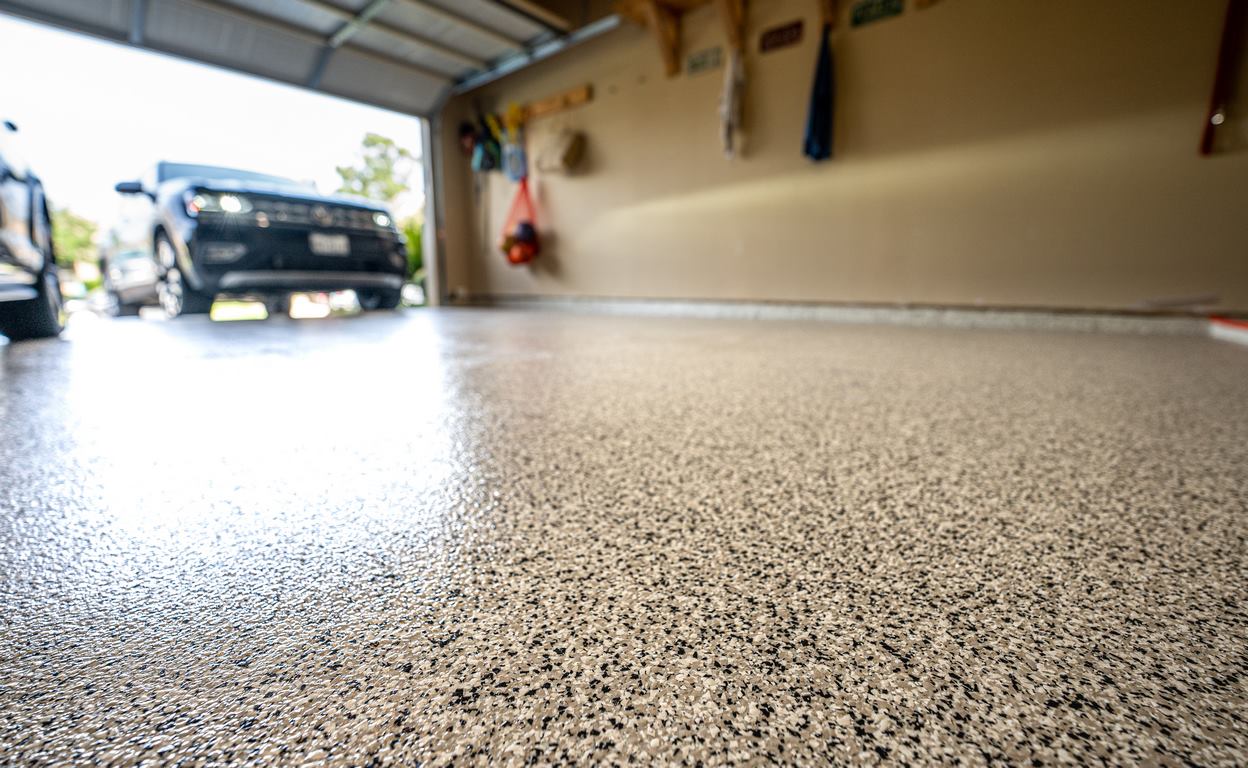Epoxy flooring is an option worth considering if you want to keep your floors free of stains. It can boost both the aesthetic and overall value of your home.
Although different floor coatings are available on the market these days, epoxy flooring is a popular choice for residential basements, garages, offices, and industrial facilities.

Epoxy has two liquid polymers that solidify once they combine in the right amounts, resulting in a chemical reaction that alters the liquid polymers into epoxy.
There are two components in epoxy: resin, which is odor-free, light, and colorless, and a hardener that’s typically dark in appearance with a strong odor.
It’s important to remember that epoxy is highly resistant to almost any form of decay and is mechanically durable. Additionally, it’s highly adhesive to any surface it bonds with.
The majority of garage floors are plain concrete. Sadly, over time, a concrete floor ends up with unsightly stains from oils, grease, and chemicals.
In the long run, the flawless concrete transforms into an undesirable surface. Once you decide to apply epoxy flooring, it’ll transform plain concrete into a smooth, durable, stain-resistant, and low-maintenance floor that’ll last for years.
If you want to learn more about epoxy flooring, checking out the websites of companies like Termishine would greatly help. Read on for some basic information you should know about it prior to having it installed on your property.
Read Also:
Epoxy flooring is highly durable and reliable in different types of environments. Depending on your specific needs, you can adjust the resin mixture to achieve the necessary hardness or elasticity.
For a custom look, you can add color and flakes into the mix. Here are some specific advantages of epoxy flooring that are worth taking into account:
The installation of epoxy flooring requires proper preparation of the surface to ensure long-lasting results. The surface should be thoroughly clean to get rid of any contaminants that can affect the bonding process.
Depending on the product, you need to power wash the concrete. After the preparation phase, check the concrete for any cracks or holes.
If any are present, they need filling and leveling. Once done, the installation of the epoxy can commence.
Once the epoxy flooring is in place, you can clean the surface with a mild detergent, hose it down with water, or use a dust mop to remove dirt.
Depending on your specific requirements, several varieties of epoxy flooring are available for you to choose from.
Epoxy flooring is a highly versatile option that’s long-lasting, durable, practical, and customizable for almost any space. Those characteristics make it the best flooring solution for residential, commercial, or industrial use.